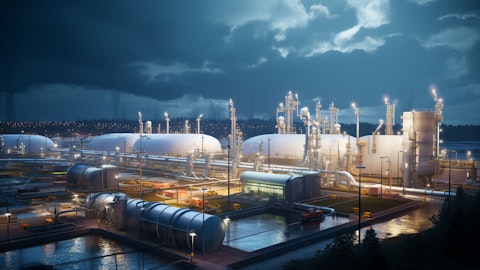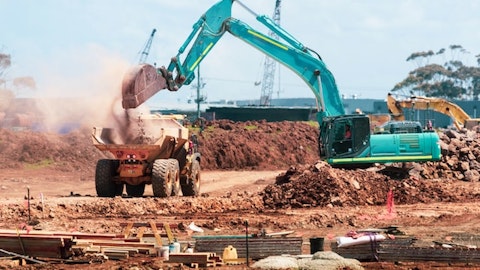Robert Kwan: Great. Good morning. If I can just touch on or ask you just around the capital allocation, specifically how you are approaching buybacks? Just do you think about buybacks, especially if this unit price as being an investment in your own assets, and the return you would get based on buying back the stock at these levels versus what you think intrinsic value is? And then, more broadly, are there any other tangible options that you see is on the table to support the share price?
Sam Pollock: Hi, Robert. So on the first question on the buyback, I think you’ve done a better job of describing how we think about it, and I probably could. Yes, we do consider it as buying back, businesses we know and understand well, and have a good view on their future prospects. And so we weigh that against, making investments in new assets and the type of returns we can get on that. So, that is the decision we weigh. And, obviously, what attract with a fine your own assets is, they’re very much derisk because what you’re getting and you understand them well. And so you’re in some respects, you have a slightly lower return threshold than you would for new investments. But we do weigh those two things, and obviously, take a long-term perspective on it.
We’re not just looking for an initial hit, it’s about, are we investing our capital for good long-term value. So that definitely is how we look at the buybacks. As far as things we can do in the short-term, I think it’s hard to do anything in particular, other than, continuing to describe the strength of the business and the prospects and the long-term value creation of the franchise. I think we’ve always tried to convey to our unitholders that Brookfield Infrastructure is a long-term compounder of wealth. And that people should buy because they want to know that putting aside where volatility might take place in the market, because of what the capital markets do. We’ll continue to deliver them with high assurance, that dividend that they have today plus that 5% to 9% growth.
And we have a long track record of doing that. And when we look at our business, for the long term, we feel as comfortable or more comfortable in our ability to do that. And I think that’s the story we just need to reinforce with investors.
Robert Kwan: Great. Thanks. And just for my second question, just to ask around [indiscernible]. I guess, first, can you talk about your take on the housing market there, housing starts? And then, just more broadly, this is one of the assets that you’ve owned, the longest, although it’s not in a limited life fund. So but can you talk about your long-term perspective on the business? How you think about the growth and valuation and even just a little bit of the evolution from where you started with this business, to where you are today and where do you think that businesses is going to go in the future?
Sam Pollock: Okay. Thanks, Robert. For shareholders and analysts who have been with us for a long time, they know this is one of mine and our company’s favorite businesses. We have owned it since we bought Babcock & Brown’s business back in 2009. And then, we’ve done a number of tuck-in acquisitions and organic growth projects to build the company up to where it is today. But let me just do your first part of your question on housing starts. This is a business, for those of you who are less familiar with it, that really participates in the housing growth — the increase in the stock of housing in the whole United Kingdom. What the business does is, it basically works with developers to install all the last mile connections. And over time, what’s special about this business is the fact that, when we first bought, we used to install just gas connections today, we provide five different connections into the home, including water, electricity, fiber, and different heating pumps, as well and so it’s unique business.



